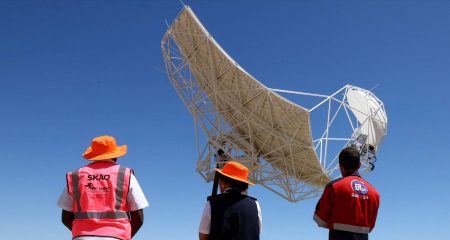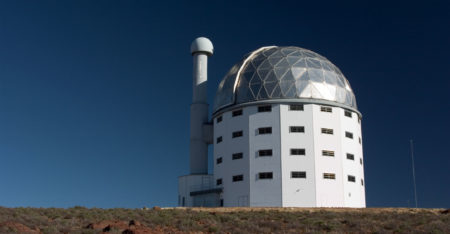
African countries need more scientists for research on the Square Kilometre Array (SKA) telescope to succeed, an official said in Pretoria on Monday.
Head of astronomy at the National Research Foundation (NRF), Nithaya Chetty, said it was essential for the continent to start investing in human capacity development.
“It is going to be absolutely tragic, if all we do is build up the infrastructure and we don’t have sufficient African scientists to utilise the excellent facilities,” he said.
“The question around human capital is certainly relevant not only to SA but throughout Africa. Remember, the SKA is not an SA project but an African one,” said Chetty.
“The plan is to develop radio astronomy into the rest of Africa. We will be building telescopes in various other African counties including Namibia, Botswana, Kenya, Zambia and Ghana.”
He said the NRF was prioritising the development of human capacity to work on the landmark project.
SA partnered with other countries in the southern hemisphere in its bid to be selected as the location of what will be the largest radio telescope ever built.
The central part of the telescope would be in the Karoo region of Northern Cape province whilst outlying stations would be erected in Botswana, Madagascar, Namibia, Ghana, Mozambique, Zambia, Kenya and Mauritius.
The other segment of the SKA would be built in Australia and New Zealand.
Chetty said there were numerous outreach programmes currently underway to attract new astronomers and develop existing human capacity.
He said there had been intensified interest from schools across SA since the announcement of the SKA decision.
“Astronomy is such an interesting vehicle for getting young people into science. If you take a telescope to any school and show them (students) the other structures in our galaxy, they start imagining and thinking beyond immediate confines.
“It is a fantastic way to excite young children into science and that is ultimately what we want. We want to produce more scientists and more graduates,” he said.
Chetty said the NRF’s outreach projects were also covering rural areas, where mainly economically disadvantaged children were found.
During an SKA-MeerKAT Schools Competition prize-giving event on Monday, science & technology minister Naledi Pandor said the milestone project presented an unrivalled opportunity for the development of high-level skills and expertise in Africa.
“We don’t want to rely on extracting raw materials from mines and exporting them to other countries any longer. Many leading economies in the world produce no mining raw materials at all. They rely on knowledge and innovation for economic growth,” she said.
The SKA, valued at €1,5bn, is expected to be completed in 2024. — Sapa




